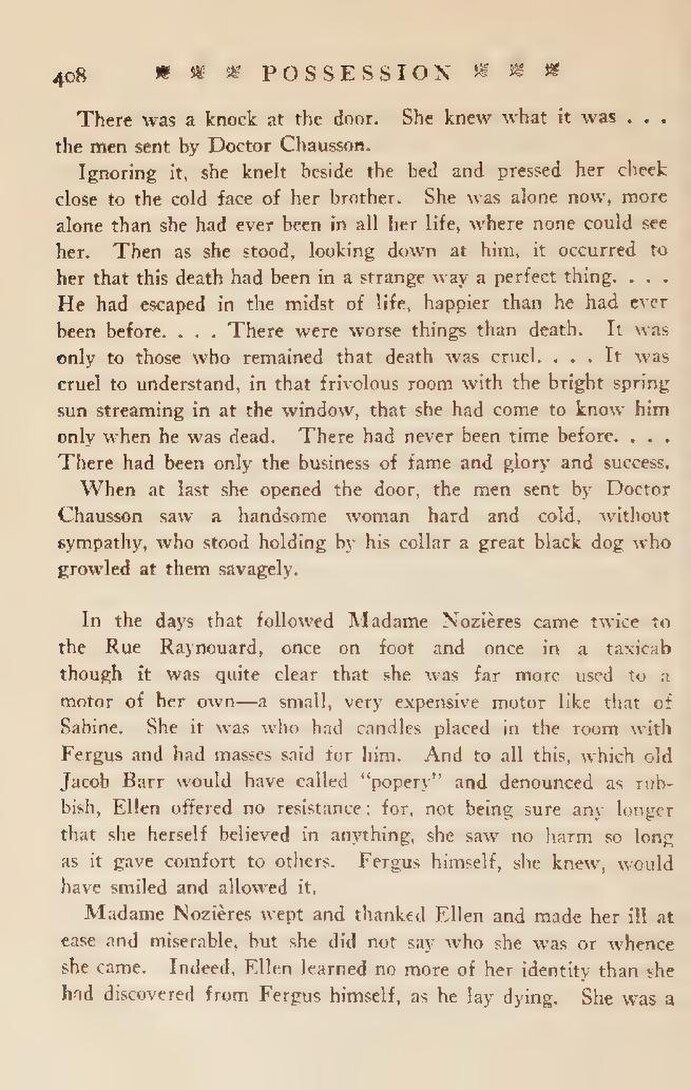There was a knock at the door. She knew what it was . . . the men sent by Doctor Chausson.
Ignoring it, she knelt beside the bed and pressed her cheek close to the cold face of her brother. She was alone now, more alone than she had ever been in all her life, where none could see her. Then as she stood, looking down at him, it occurred to her that this death had been in a strange way a perfect thing. . . . He had escaped in the midst of life, happier than he had ever been before. . . . There were worse things than death. It was only to those who remained that death was cruel. . . . It was cruel to understand, in that frivolous room with the bright spring sun streaming in at the window, that she had come to know him only when he was dead. There had never been time before. . . . There had been only the business of fame and glory and success.
When at last she opened the door, the men sent by Doctor Chausson saw a handsome woman hard and cold, without sympathy, who stood holding by his collar a great black dog who growled at them savagely.
In the days that followed Madame Nozières came twice to the Rue Raynouard, once on foot and once in a taxicab though it was quite clear that she was far more used to a motor of her own—a small, very expensive motor like that of Sabine. She it was who had candles placed in the room with Fergus and had masses said for him. And to all this, which old Jacob Barr would have called "popery" and denounced as rubbish, Ellen offered no resistance; for, not being sure any longer that she herself believed in anything, she saw no harm so long as it gave comfort to others. Fergus himself, she knew, would have smiled and allowed it.
Madame Nozières wept and thanked Ellen and made her ill at ease and miserable, but she did not say who she was or whence she came. Indeed, Ellen learned no more of her identity than she had discovered from Fergus himself, as he lay dying. She was a
